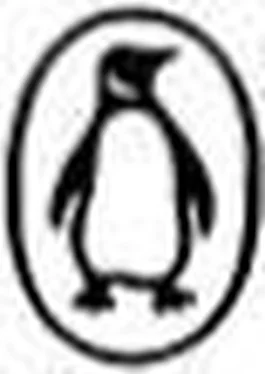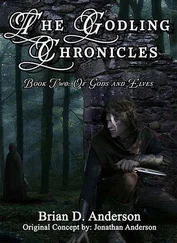Davidson, H. - Gods and Myths of Northern Europe
Здесь есть возможность читать онлайн «Davidson, H. - Gods and Myths of Northern Europe» весь текст электронной книги совершенно бесплатно (целиком полную версию без сокращений). В некоторых случаях можно слушать аудио, скачать через торрент в формате fb2 и присутствует краткое содержание. Жанр: Старинная литература, на английском языке. Описание произведения, (предисловие) а так же отзывы посетителей доступны на портале библиотеки ЛибКат.
- Название:Gods and Myths of Northern Europe
- Автор:
- Жанр:
- Год:неизвестен
- ISBN:нет данных
- Рейтинг книги:5 / 5. Голосов: 1
-
Избранное:Добавить в избранное
- Отзывы:
-
Ваша оценка:
- 100
- 1
- 2
- 3
- 4
- 5
Gods and Myths of Northern Europe: краткое содержание, описание и аннотация
Предлагаем к чтению аннотацию, описание, краткое содержание или предисловие (зависит от того, что написал сам автор книги «Gods and Myths of Northern Europe»). Если вы не нашли необходимую информацию о книге — напишите в комментариях, мы постараемся отыскать её.
Gods and Myths of Northern Europe — читать онлайн бесплатно полную книгу (весь текст) целиком
Ниже представлен текст книги, разбитый по страницам. Система сохранения места последней прочитанной страницы, позволяет с удобством читать онлайн бесплатно книгу «Gods and Myths of Northern Europe», без необходимости каждый раз заново искать на чём Вы остановились. Поставьте закладку, и сможете в любой момент перейти на страницу, на которой закончили чтение.
Интервал:
Закладка:
For this duel the giants made a clay man, called Mist-Calf, to support Hrungnir. Hrungnir himself had a sharp, three-cornered heart of stone, and a stone head, and he was armed with a stone shield and a whetstone. Thor came out with Thialfi to meet him, and Thialfi told the giant he had better stand on his shield, in case Thor attacked him from below. Then Thor bore down on Hrungnir with thunder and lightning, and hurled his hammer at him, while the giant threw his whetstone. The weapons met in mid air, and the whetstone was shattered, but one piece lodged in Thor’s forehead. The hammer went on to strike Hrungnir’s skull and break it in pieces. Meanwhile Thialfi had dealt with the clay figure without much difficulty. The only problem was caused by Hrungnir falling on top of Thor, for no one could move his great leg off the god until Thor’s little son, Magni, came up and pushed it away. Magni received the horse Goldmane as a reward. A seeress tried to sing spells to get the piece of whetstone out of Thor’s head, but he began to tell her how he had once carried her husband Aurvandil in a basket out of giant-land, and when one toe of Aurvandil had frozen, he had flung it up into the sky to become the star called Aurvandil’s Toe. She was so interested that the spell was never finished, and so the stone still remains in Thor’s head.
Thor’s visit to Geirrod
Another tale about Thor tells of his expedition to the realm of Geirrod. Loki had again been out flying in Freyja’s feather shape, and he was captured in the hall of Geirrod by the giant himself. Geirrod recognized the hawk by its eyes, and knew it to be Loki, so he shut him up and starved him for three months, until he promised to bring Thor to the hall without his hammer or belt of strength. Loki succeeded in this, but on the way Thor was warned of his danger by a friendly giantess, who lent him her magic staff, another belt, and iron gloves. First Thor was nearly drowned in the river Vimir, for Geirrod’s daughter stood astride the stream making it swell, until he struck her with a huge rock, and then climbed out with the aid of a rowan tree. Then he entered Geirrod’s hall, and sat down on a seat, but at once felt himself being raised to the roof. He forced the seat down with the aid of his magic staff, and so broke the backs of Geirrod’s two daughters, who had been pushing up his chair. Then he went up to Geirrod, who flung a ball of hot iron at him. Thor caught it with his iron gloves, and while Geirrod ducked behind a pillar, he hurled it through the pillar and the giant together. So Thor went back unscathed to Asgard.
The Treasures of the Gods
There is also the story of how the gods obtained their wonderful treasures. One day in a fit of mischief Loki cut off Sif’s golden hair, and Thor would have killed him if he had not found two cunning dwarfs to make new tresses of real gold for Sif, which would grow like natural hair. They also made Freyr’s wonderful ship and Odin’s great spear Gungnir. Loki then challenged two other skilful dwarfs to make three more treasures as good as these, wagering his head that they would not succeed. As they laboured in the smithy the dwarf working the bellows was stung persistently by a fly, but in spite of this they succeeded in forging a marvellous boar with bristles of gold, which could run faster than any steed and light up the darkest night. They also forged the great gold ring, Draupnir, from which eight other rings dropped every ninth night.
As they were making the third treasure, the fly stung the dwarf again, this time on his eyelid, and he had to raise his hand to brush it away. The third treasure was the great hammer Mjollnir, which would hit anything at which it was thrown and return to the thrower’s hand. Because of the interference of the fly, however, which was Loki in disguise, it was a little short in the handle. Nevertheless the gods held that the hammer was the best of all their treasures, and a sure weapon against their enemies, and they declared that Loki had lost his wager. He ran away, only to be caught by Thor and handed over to the dwarfs; they wanted to cut off his head, but Loki argued that they had no right to touch his neck. So in the end they contented themselves with sewing up his lips.
The Ransom of Otter
Odin and Loki also play a part in the story of the otter’s ransom, which leads on to the famous tale of the hero Sigurd the Volsung. The two gods were wandering through the world with Hoenir one day, when they saw an otter on the edge of a waterfall, drowsily eating a salmon. Loki flung a stone at the otter and bragged of his double catch. But when that night they stopped at the house of a man called Hreidmar, it transpired that the otter was his son in animal form, and he and his other sons, Fafnir and Regin, threatened to slay the gods in revenge. They had to agree to the ransom imposed by Hreidmar, which was to fill the otter skin with gold and then pile gold over it until it was hidden from sight. To do this, Loki had to catch the dwarf Andvari, who was hiding in the shape of a fish, and make him give up the great golden treasure which he was known to possess. The dwarf tried hard to hold on to a little gold ring, which he said would help him to become rich again, but which would bring destruction on all who possessed it. Loki however insisted on taking that too, and it was needed in the end, since when gold covered the skin, one whisker could still be seen and the ring was used to hide it. It is for this reason that poets use such names for gold as ‘otter’s ransom’ or ‘forced payment of the Aesir’.
The wonderful golden treasure only brought ruin to the house of Hreidmar in the end, for his sons slew him in their greed, and then Fafnir turned himself into a dragon and lay upon the gold. His brother Regin urged on the young hero Sigurd the Volsung to slay the dragon, but when Sigurd discovered Regin was tricking him, he slew him as well. Sigurd came into possession of Andvari’s ring when he took over the treasure, and this ring ultimately caused his own death and much unhappiness.
6. Myths outside the Prose Edda
This concludes the series of stories given in the Prose Edda about the gods and their doings. We can add to them one more story in the form of a narrative poem, very similar in spirit to those in Snorri’s collection. This is the tale of how the giant Thrym stole Thor’s hammer, and the unknown poet tells it with the same ironic humour and imaginative delight which distinguishes Snorri’s myths. The poem, Prymskviða , is found in the Elder Edda .
The Theft of Thor’s Hammer
The story goes that one day Thor discovered that his hammer had been stolen, and he called on Loki to find out what had become of it. Loki borrowed Freyja’s falcon shape and went out to search, and he found at last that the giant Thrym had hidden the hammer deep down in the earth, and refused to return it to the gods unless he were given Freyja as his wife. This message caused the greatest consternation in Asgard, and sent Freyja into so great a rage that she shattered her famous necklace as she panted with fury. But Heimdall suggested a plan to get back the hammer without risk to Freyja. Thor was to wrap himself in a bridal veil and journey to Jotunheim in Freyja’s place, accompanied by Loki disguised as the bride’s handmaid. At first Thor thought such a disguise beneath his dignity, but Loki reminded him tardy that without the hammer there was no hope for Asgard.
Thunder and lightning rent the mountains as they drove off in Thor’s chariot, and when they entered Jotunheim they received an enthusiastic welcome. At the feast that night all was nearly discovered because of the bride’s voracious appetite, but Loki quickly explained that the reason why Freyja was able to eat an ox and eight salmon was because her ardent longings for the wedding had kept her fasting for eight nights. Again when Thrym tried to kiss the bride, he was terrified by a glimpse of. the god’s terrible burning eyes beneath the veil, but Loki explained that Freyja had had no sleep for eight nights, so intense was her longing for Jotunheim. Thor’s ordeal came to an end when the hammer was at last brought in to hallow the bridal couple, and laid in the lap of the bride. Once he had his hands upon it, it was not long before Thrym and all the wedding party were slain, and Thor returned with Loki in triumph to Asgard.
Читать дальшеИнтервал:
Закладка:
Похожие книги на «Gods and Myths of Northern Europe»
Представляем Вашему вниманию похожие книги на «Gods and Myths of Northern Europe» списком для выбора. Мы отобрали схожую по названию и смыслу литературу в надежде предоставить читателям больше вариантов отыскать новые, интересные, ещё непрочитанные произведения.
Обсуждение, отзывы о книге «Gods and Myths of Northern Europe» и просто собственные мнения читателей. Оставьте ваши комментарии, напишите, что Вы думаете о произведении, его смысле или главных героях. Укажите что конкретно понравилось, а что нет, и почему Вы так считаете.












